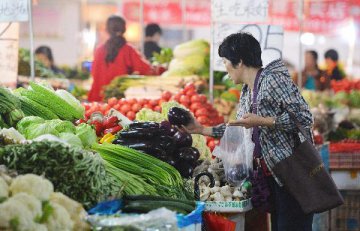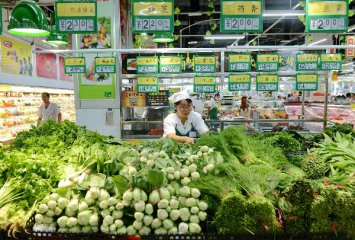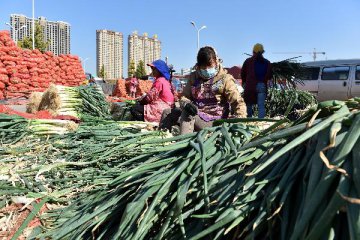
Institutions including the Chinese central bank, think tanks and stock brokers widely predict that China's consumer price index (CPI) would have stayed between 1.4 percent and 1.5 percent for the whole year of 2015 and rise moderately in 2016 after keeping at a low level for a period.
A report from Chinese Academy of Social Sciences (CASS)'s National Academy of Economic Strategy says low global commodity prices since 2015 have brought downward pressure on the producer pride index (PPI) to raw material importing countries and the pressure has streamed down to consumer prices.
Wu Qi, an analyst at China Minsheng Academy, predicts the CPI may grow 1.7 percent in 2016. Wu explains that from the international perspective, Renminbi's joining in the currency basket of the International Monetary Fund (IMF)'s special drawing right would stabilize its value against other currencies amid expectations that the U.S. Federal Reserve would continue to hike interest rates.
Domestically, China's economic restructuring and new model of consumption cultivating would further encourage spending, Wu says. The People's Bank of China (PBOC) also expects the CPI to rise 1.7 percent in 2016.
The central bank says in a report that price rises of energy, food and iron ore would gradually turn positive in 2016; moreover, China has lowered the interest rates five times and cut the required reserve ratio for banks five times since 2015 and expanded the proactive fiscal policy, all of which will help boost the CPI in China.
Meanwhile, several experts believe China is likely to further ease monetary policy in 2016 to counter the downside pressure on the economy and deflation.






















Latest comments